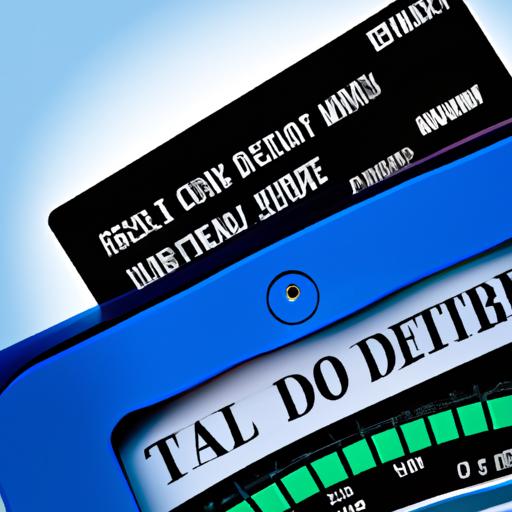Home Equity Loan Credit Score 580: Your Key to Unlocking Financial Opportunities
Introduction
Are you considering tapping into your home’s equity to secure a loan, but unsure how your credit score plays into the equation? Let’s delve into the world of home equity loans and credit scores, where a magic number like 580 could be your ticket to financial flexibility. Your credit score is a pivotal factor in the home equity loan application process, influencing your eligibility and the terms you may secure. With a focus on the crucial credit score of 580, let’s explore how this number can open doors to new possibilities for you.
Understanding Home Equity Loans
Definition of Home Equity Loans
To start our journey into the realm of home equity loans, let’s establish what exactly these financial instruments entail. Home equity loans, also known as second mortgages, allow homeowners to borrow against the equity they have built in their property. This type of loan is secured by the value of your home, making it a less risky option for lenders compared to unsecured loans.
How They Differ from Other Types of Loans
One key distinction of home equity loans is their secured nature, meaning your home serves as collateral. This security often allows for lower interest rates compared to unsecured loans like personal loans or credit cards. Additionally, home equity loans typically offer fixed interest rates and set repayment terms, providing borrowers with predictability and stability in their financial planning.
Benefits of Using Home Equity for Borrowing
Utilizing your home equity can offer various advantages, including access to larger loan amounts due to the substantial value of your property. Moreover, the interest paid on home equity loans may be tax-deductible, providing potential financial benefits for homeowners. By leveraging your home equity, you can access funds for significant expenses such as home improvements, education costs, or debt consolidation, making it a versatile financial tool.
Impact of Credit Score on Home Equity Loans
Explanation of Credit Score and its Significance
Your credit score serves as a numerical representation of your creditworthiness, reflecting how responsibly you manage your financial obligations. Lenders use this score to assess the risk associated with lending to you. A higher credit score typically indicates a lower risk for lenders, while a lower score may raise red flags.
How Credit Score Affects Eligibility for Home Equity Loans
When it comes to home equity loans, your credit score plays a significant role in determining your eligibility. Lenders often set minimum credit score requirements to qualify for these loans. A credit score below the threshold may limit your options or lead to less favorable terms. Understanding where you stand on the credit score spectrum is crucial when considering a home equity loan.
Importance of a Good Credit Score in Securing Favorable Loan Terms
A good credit score not only improves your chances of qualifying for a home equity loan but also opens doors to more favorable loan terms. With a higher credit score, you may access lower interest rates, higher loan amounts, and better repayment terms. Investing in maintaining and improving your credit score can pay off significantly when seeking a home equity loan.
Home Equity Loans for Credit Scores 580
Challenges of Obtaining a Home Equity Loan with a Credit Score of 580
Are you feeling discouraged by the challenges of securing a home equity loan with a credit score of 580? While it may seem daunting, there are ways to navigate through this hurdle and still access the funds you need. Lenders typically consider a credit score of 580 as subprime, which can lead to higher interest rates and stricter lending requirements. Understanding these challenges is the first step towards finding solutions that work for you.
Options Available for Borrowers with Lower Credit Scores
If you find yourself in a situation where your credit score is hovering around 580, don’t despair. There are still options available for borrowers with lower credit scores to obtain a home equity loan. Some lenders specialize in working with individuals with less-than-perfect credit, offering tailored solutions to meet your needs. Exploring these alternative options can help you find a path towards securing the loan you desire.
Strategies for Improving Credit Score to Qualify for a Loan
Improving your credit score is a proactive approach that can increase your chances of qualifying for a home equity loan. By implementing effective strategies such as paying off existing debts, making timely payments, and monitoring your credit report for errors, you can gradually boost your credit score over time. Taking steps to improve your creditworthiness not only enhances your eligibility for a loan but also positions you for better terms and rates in the future.
Tips for Applying for a Home Equity Loan with a Credit Score 580
Factors to Consider Before Applying for a Loan
Before diving into the home equity loan application process, it’s essential to evaluate your financial situation thoroughly. Consider factors such as your current income, expenses, debt-to-income ratio, and overall financial stability. Understanding your financial standing can help you determine if taking on a home equity loan is a feasible option for you at this time.
Documents Needed for the Loan Application Process
When applying for a home equity loan with a credit score of 580, be prepared to provide necessary documentation to support your application. Lenders typically require documents such as proof of income, tax returns, bank statements, and details about the property you’re using as collateral. Having these documents ready and organized can streamline the application process and demonstrate your preparedness to lenders.
How to Present a Strong Case to Lenders Despite a Lower Credit Score
While a credit score of 580 may pose challenges in securing a home equity loan, there are strategies you can employ to strengthen your case to lenders. Emphasize factors such as stable employment history, consistent income, and a clear plan for loan repayment. Additionally, consider offering a larger down payment or seeking a co-signer to boost your credibility in the eyes of lenders. By presenting a compelling case, you can increase your chances of approval for a home equity loan.






